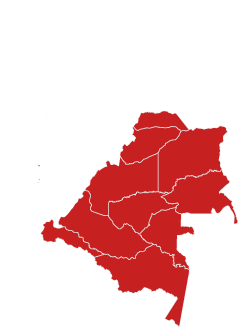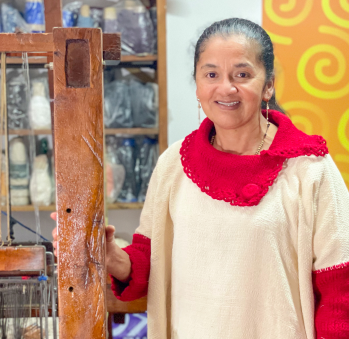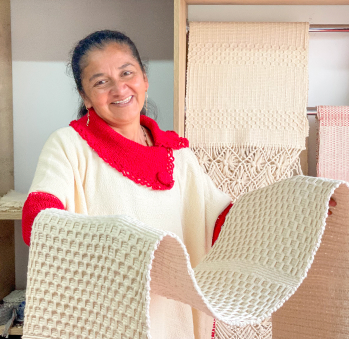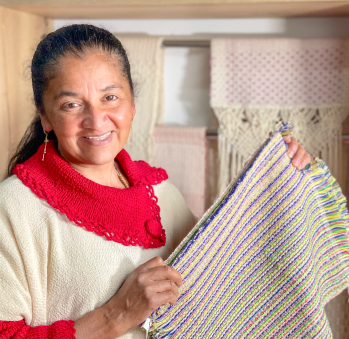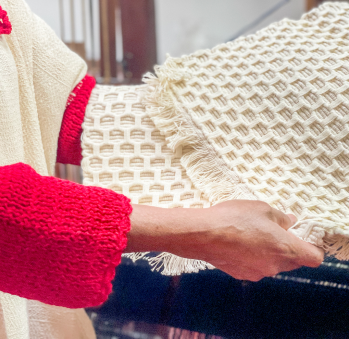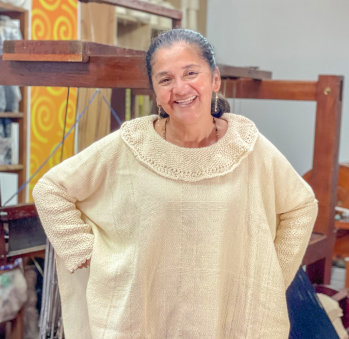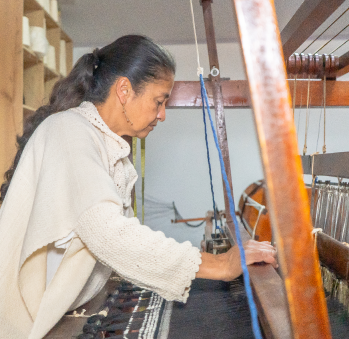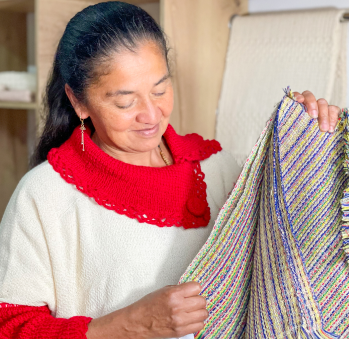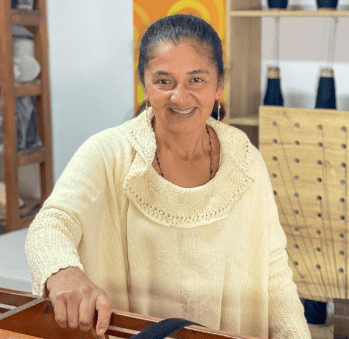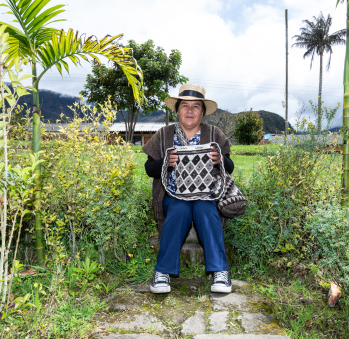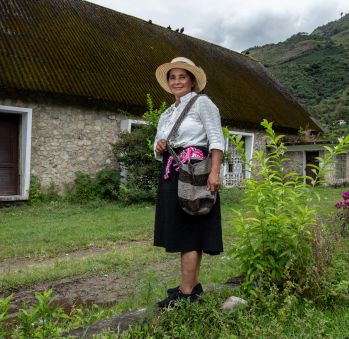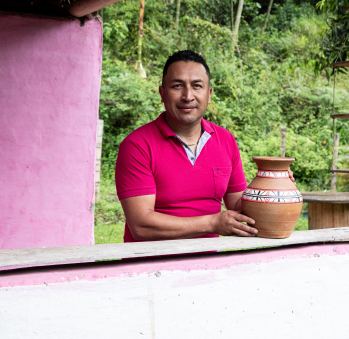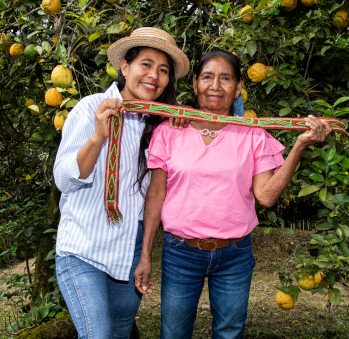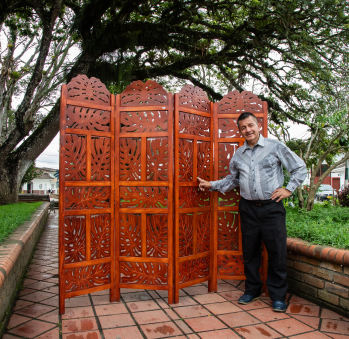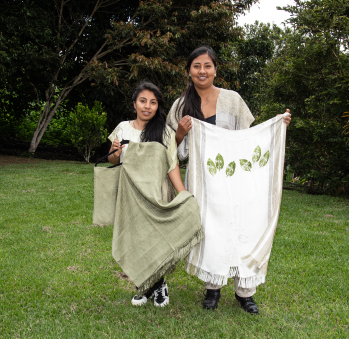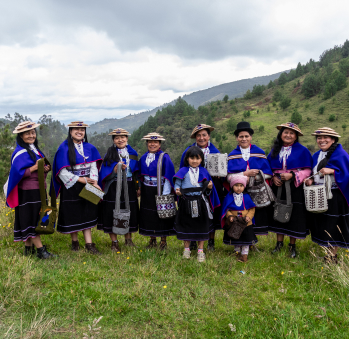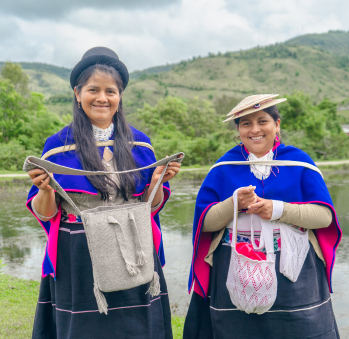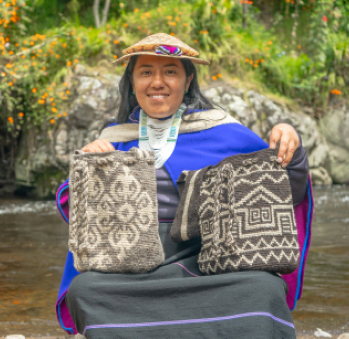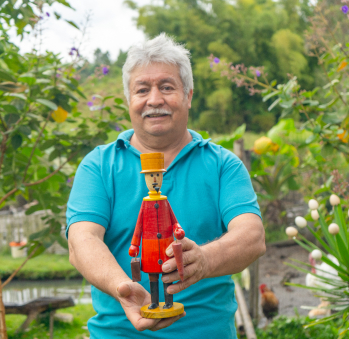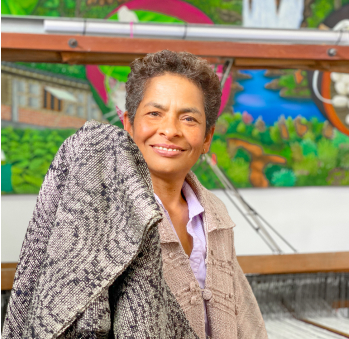María Leida Calambás
Workshop: Tuaca
Craft: Weaving
Trail: Popayán-Páez Route
Location: Piendamó, Cauca
SCHEDULE YOUR VISIT
Calle 2A #3-90 Piendamó, Cauca
3186884146
leida2504@gmail.com
Maria Leida was born in the village of San Isidro, in the town of Morales, but she ended up going to live, study and work with her large family of ten siblings to Tunía, about an hour away from the capital of Cauca, Popayán. She was raised there. She watched her mother, Doña María Antonia Zúñiga, weave the mats on which the whole family slept and sometimes went with her to look for the fiber that she used to make them. Maria Leida admired seeing her touch the leaves of the giant reed: the one that looks so much like sugar cane “but is longer,” as she says, and that she herself also harvested and dried. Even if it was to be expected, she never imagined that she would end up being a craftswoman: “it was in my blood and my mother had instilled in me a little of what she knew.”
Her youth was not easy. To finish high school, she had to work in the day and study at night. She remembers with great joy when, almost 30 years ago, the Carvajal Foundation, through CorpoTunía, came to her town to offer a weaving course, and she did not hesitate to enroll. She felt it as a calling. A “paisita from Santa Rosa de Osos, Don Antonio Escobar,” thus became her teacher and mentor. She worked with him for many years and participated, with her 12 other classmates, in numerous craft shows. However, the society dissolved over the years, and the group was reduced to four craftswomen. Finally, she was left alone. After a long time working by his side, she felt she was ready to start her own path. That happened more than 12 years ago. At that time, she knew little about warping despite knowing a lot about weaving and loom threading. So, during that first stage of her independent days, she immersed herself in learning the craft of warping. It took her six months to become an expert. Even don Antonio, satisfied, told her that the student had already surpassed the teacher.
She started out, as in everything she has ever done, with loans. With a million and a half pesos, she was able to buy a small loom 1.20 meters wide. She used it to make cotton place mats, which is the natural fiber with which she has always woven. Having paid off that debt, she saw that she could embark on a new adventure buying a new loom 1.50 meters wide. With this new acquisition, she was able to start making fabrics for bedspreads or hammocks, ponchos or ruanas. It was a challenge that opened a whole range of new possibilities and markets for her. She paid her loans and began to receive more and more orders. One thing that fills her with pride is having made the fabrics for the dresses of the silleteros in the renown Piendamó parades. She got together with the embroiderers of the town and made beautiful attires. She also joined forces with other artisans and has included crochet and macramé fabrics in her pieces. The latter are made by the experienced hands of her mother. Her workshop has become a family business where her siblings Gloria Nelgy and José Olmedo also work. She is also excited to tell us that four of the apprentices she trained in the art of weaving at Popayán’s Workshop School also work with her.
This tireless woman dedicates her mornings to agriculture. She harvests coffee and farms bananas. This is a tradition that she inherited from her family. In the afternoons, evenings, and early mornings, she spends her time weaving. Subjecting her life to this trade, she forgets about the world that surrounds her. She concentrates and stays there, until the end of the task. These have been the past thirty years of her life and it fills her with pride.
Craft
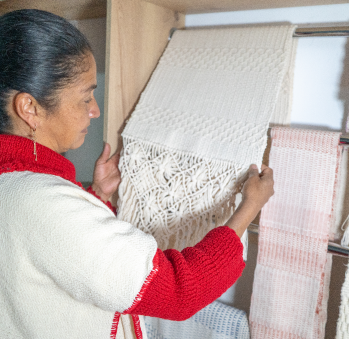
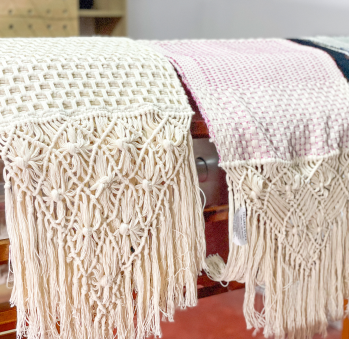
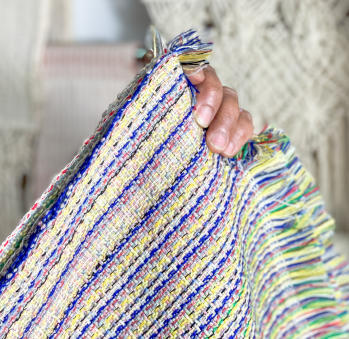
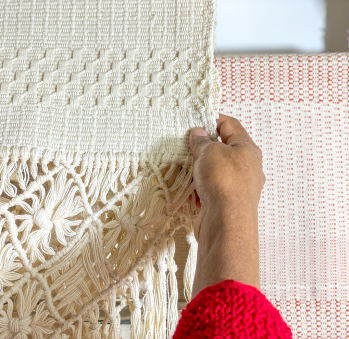
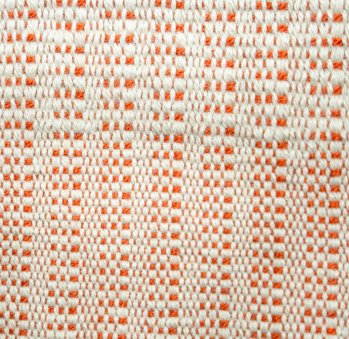





Artisans along the way
Artisans along the way
No puede copiar contenido de esta página

